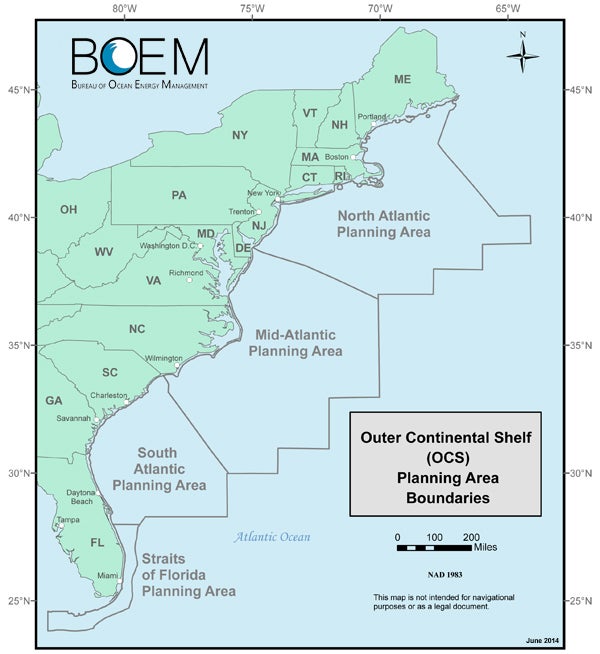Obama extends underwater drilling ban to new areas

The Hudson is one of the underwater canyons to be protected. (Image Alan Tu/Google Earth)
President Obama yesterday used a 63-year-old law to permanently ban oil and gas drilling in parts of the Atlantic Ocean, a step long recommended by coastal advocates in New Jersey.
The action expands upon a five-year prohibition announced by the Obama administration last month that excluded drilling and exploration in the Atlantic and portions of the Arctic Ocean in a new offshore leasing plan to take effect next year.
In barring drilling, Obama invoked his authority under the Outer Continental Shelf Land Act of 1953. The law is viewed as being harder to overturn than an executive order issued by the president to accomplish the same goal, according to proponents of the ban.
The law gives the president the authority to put areas off limits to oil and gas drilling. In this instance, Obama’s decision affects nearly 4 million acres in the north and mid-Atlantic Ocean and 115 million acres in the Arctic Ocean.

No drilling had been planned off the Jersey coast, but clean-ocean advocates feared that proposed leases off Virginia could pose a threat to the Garden State’s $43 billion tourism industry if a spill occurred off the commonwealth.
More importantly, with President-elect Donald Trump vowing to exploit the nation’s fossil fuels to the fullest, the president’s actions hinder plans to extract oil and gas buried in the Outer Continental Shelf and protect ecologically sensitive marine environments, advocates said.
“This is a historic victory in our fight to save our Arctic and Atlantic waters, marine life, coastal communities, and all they support,” said Rhea Suh, president of the Natural Resources Defense Council.
But pro-drilling advocates criticized the decision. “These offshore areas belong to the public and should be used to their benefit — not to further the President’s keep-it-in-the-ground political agenda,’’ said Chris Warren, vice president of the American Energy Alliance.
According to the Department of the Interior, the decision protects 31 canyons that are regions of enhanced biodiversity, home to numerous species, including deep-water corals and deep-diving whales.
The ban builds on protections established by the recent creation of the Frank R. Lautenberg Deep Sea Coral Protection Areas, an area of deep canyons approved by the National Oceanic and Atmospheric Administration.
“What the President did today was really a victory for our coast,’’ said Jeff Tittel, director of the New Jersey Sierra Club. “This will be a big part of his legacy.’’
Rep. Frank Pallone (D-6th), a congressman from Monmouth County and longtime coastal advocate, said a permanent ban on drilling in the Atlantic is necessary. “Oil spills don’t respect state borders,’’ he said. “The fact remains that opening up the Atlantic Ocean for fossil-fuel development is unnecessary, poses a serious threat to our coastal communities, and is the wrong approach.’’
In addition to the Atlantic, the president’s action indefinitely precludes drilling in the entire U.S. Chukchi Sea and significant portions of the Beaufort Sea in the Arctic.
“Risks associated with oil and gas activity in the remote, harsh, and undeveloped Arctic are not worth taking when the nation has ample energy sources near existing infrastructure,’’ said Abigail Ross Hopper, the director of the agency’s Bureau of Ocean Energy Management.
___________________________________________
NJ Spotlight, an independent online news service on issues critical to New Jersey, makes its in-depth reporting available to NewsWorks.
WHYY is your source for fact-based, in-depth journalism and information. As a nonprofit organization, we rely on financial support from readers like you. Please give today.




